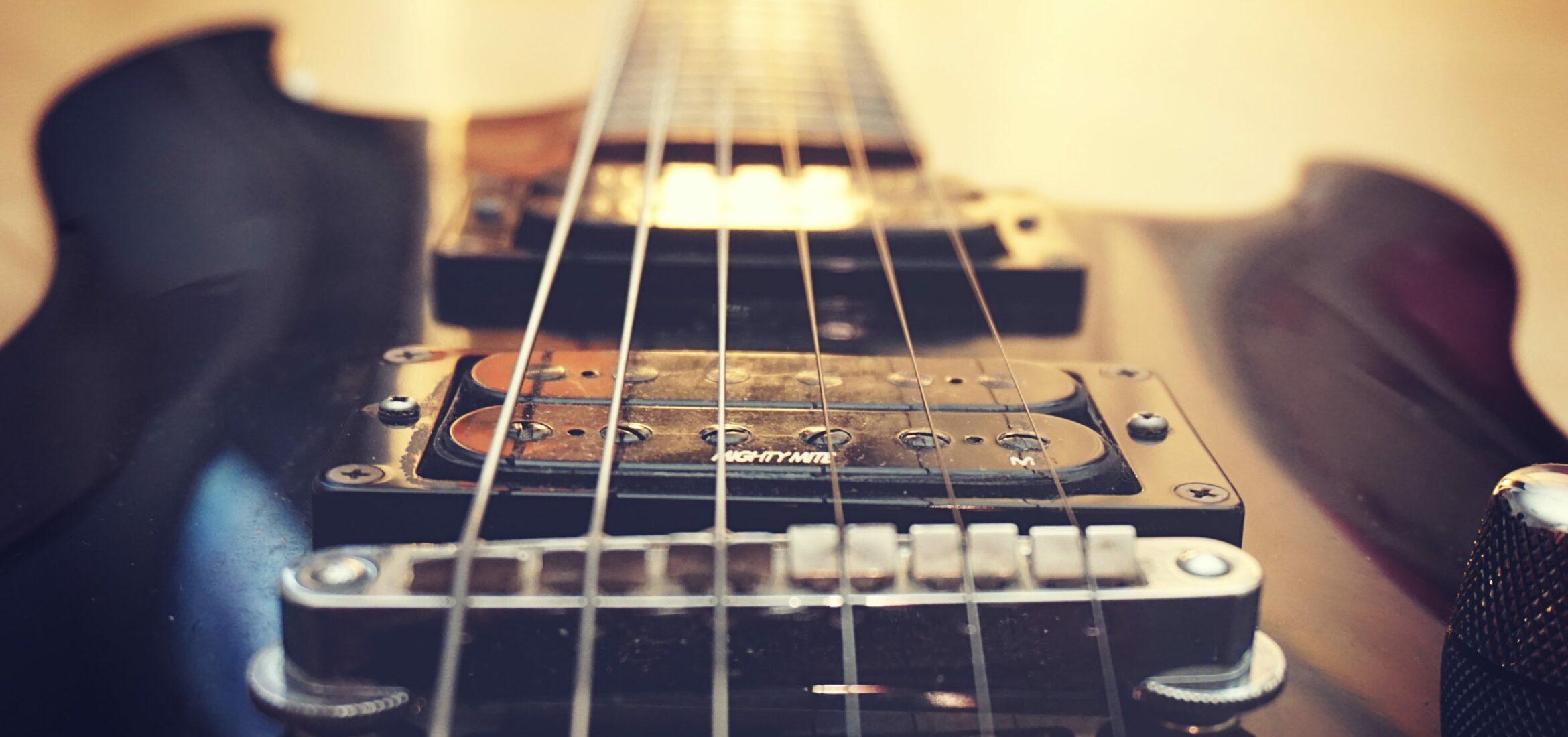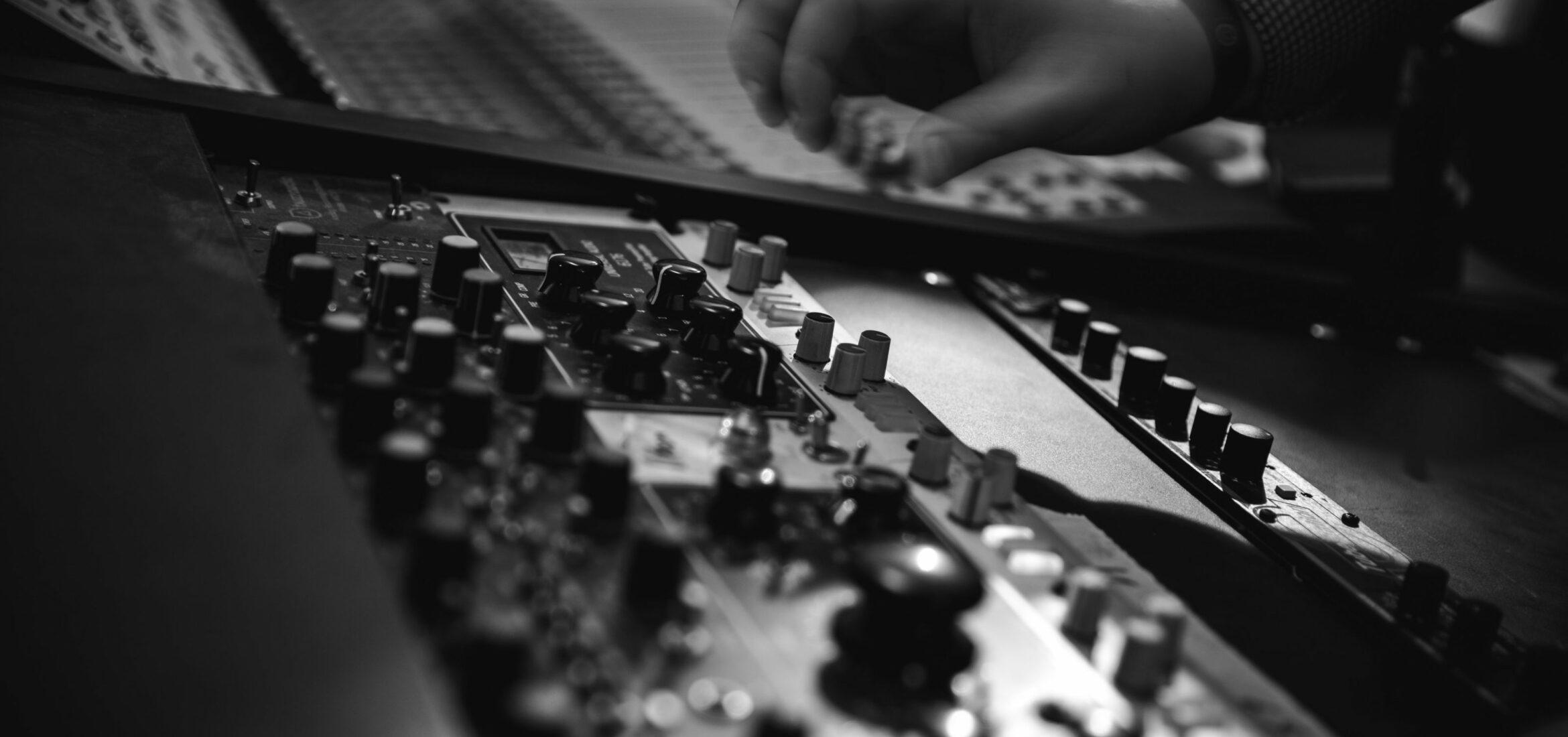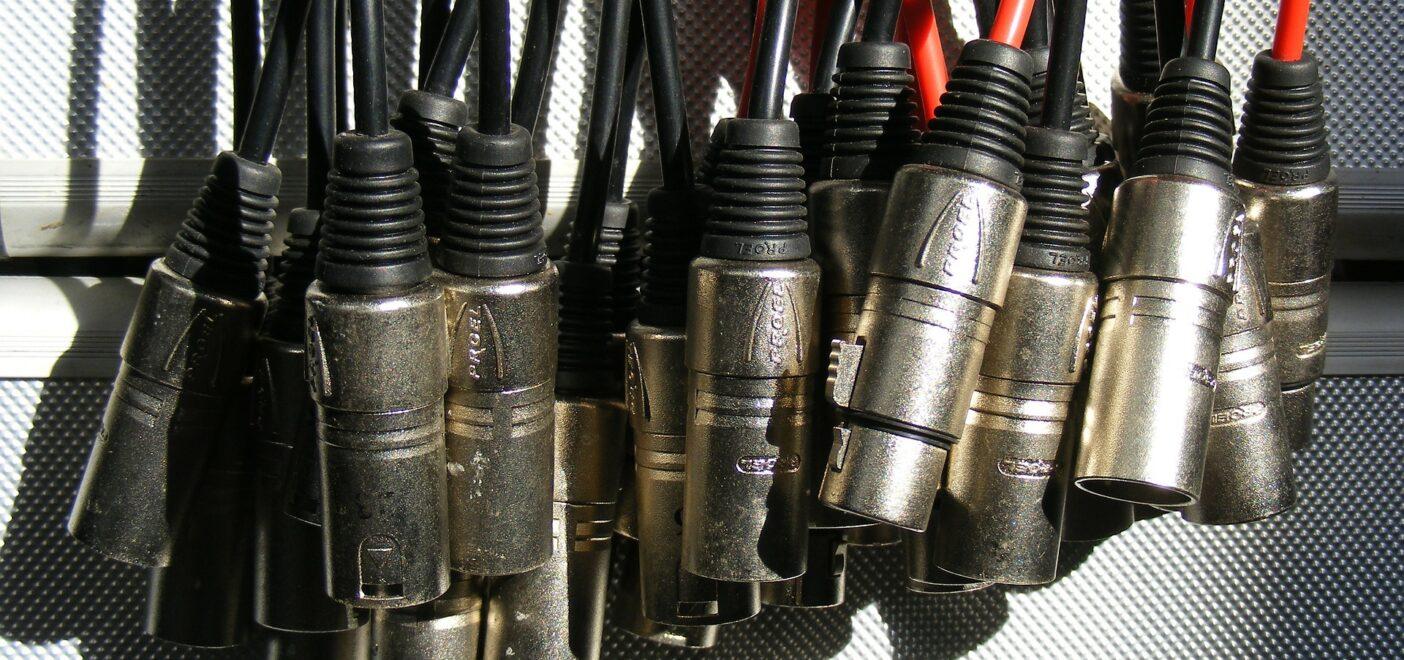I think at some point in our lives, we’ve all had the same thought: I’m going to learn to play the guitar! Sounds great in practice, but the reality can come crashing down eventually. As easy as we may think it’ll be, it never is. Not only this, but there’s a whole host of other things to think about when buying audio equipment. What is my first electric guitar going to be? Do I need to buy other equipment as well? Today, I’d like to try to address some information that will help both beginners and more experienced players alike when it comes to picking up your very first electric guitar.
Table of Contents
- Don’t Be a Cheapskate
- Don’t Waste Your Money
- Never Be Too Proud to Ask for Help
- Choose the Right Pickups for What You Want to Play
- Extras and Package Deals
- A Few Standout Choices for Your First Electric Guitar
- TL;DR
Don’t Be a Cheapskate
This is probably one of the most valuable pieces of information to take away today, which is why I have started with it. Cheaping out and trying to save a few bucks is most likely to lead to one of two scenarios.

One: it sounds awful and handles worse, which could put you off the whole concept of playing guitar forever. A bad experience when you’re first starting with something new is not what you want. In my time as a teacher, I’ve seen many people discouraged from trying new things because they think they are no good at them. However, the reality is that the equipment they’ve got is poor quality and, as such, isn’t giving them the sound they expected. Bad gear leads to bad tone and bad recordings.
Two: it very quickly starts to fall apart. No-name clones of popular electric guitar types are always the most susceptible to this. You get a little way down the line with your first electric guitar, and all of a sudden, the knobs fall off and your pickups stop working. Cheap components and poor craftsmanship make for a bad guitar. As a general rule, if you can’t easily research a guitar, it probably isn’t worth buying.
Don’t Waste Your Money
Just as being cheap is a terrible idea, so is being too lavish with your purchases. Now, if you’re in a well-paid job with thousands to spare, feel free to skip this section, as I’m not talking to you. However, if you’re one of the many people under the thumb of global capitalism, you’re unlikely to be able to justify spending $4000.00 on your first electric guitar. This is a good thing! When you first learned to drive, you didn’t go out and buy a Ferrari, did you?
An expensive guitar in the hands of the unskilled makes for nothing more than an ego boost. Anyone who tells you that buying an obscenely expensive first guitar will make you sound great right off the bat is trying to make a sale. Put the time and money into lessons and practice first. Even the very best guitarists are more than happy with instruments that retail for far under the $1000 mark. Sticking to the $200-400 range should see you fit quite nicely into a sensible first electric guitar.
Never Be Too Proud to Ask for Help
So, now that we’ve established a price point, we need to delve into some more detail. Walking into a music store for the first time can be a pretty daunting experience. There’s so much choice to make in terms of shape, size, and characteristics. My second super tip for this article is: don’t be afraid to ask for help.
If you’ve got a friend who plays, even if only for a short time, take them with you. Their knowledge and personal experiences can help identify what you need much quicker than you could alone. Equally, ask for the help of store staff. Just be wary of people trying to make sales!
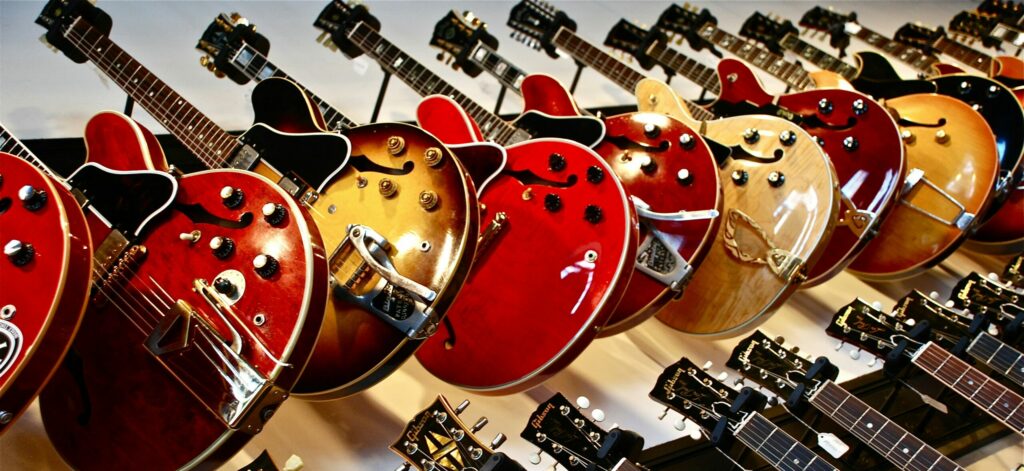
Being able to narrow in on some of the finer details will save time as well as money. The last thing you want to do is return your guitar because the length isn’t right for you or the pickups don’t offer the tone you want. It’s great to make mistakes and learn from them, but if you don’t have to, isn’t that even better?
Choose the Right Pickups for What You Want to Play
Now for some of the more technical stuff. Personally, I believe that things like shape, size, and feel are all totally down to personal preference. As such, there isn’t much use in me telling you that you must buy a very specific type of guitar. However, one thing worth making a decision on early on is pickups.
For those not in the know, the job of the pickup is to capture the vibrations in the strings and convert them into an electrical signal, which is sent to an amplifier. The two most common options you’ll have are single coils or humbuckers. Without going into the science of it, the main distinction between the two is as follows:
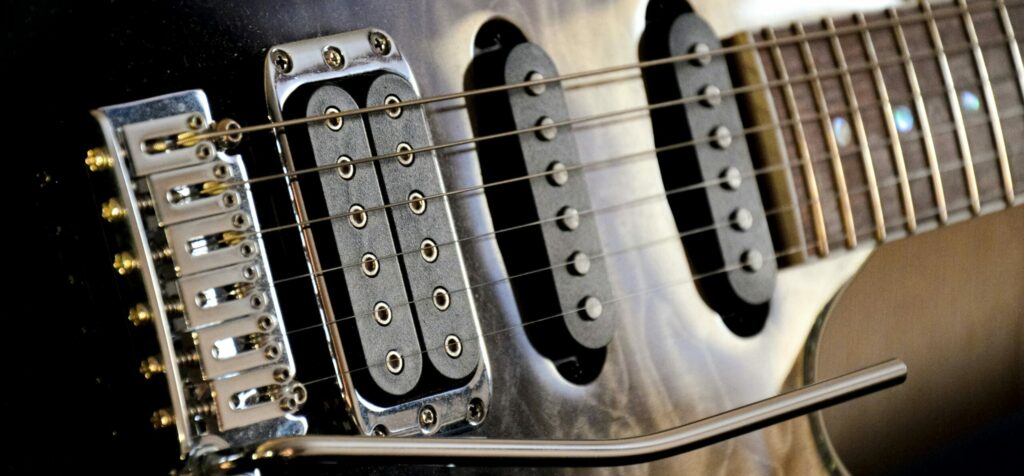
Single coils tend to be noisier but provide a much brighter and clearer tone. Humbuckers don’t have these noise issues (as the name would suggest, they ‘buck’ the hum) and are typically associated with a thicker and warmer tone.
Applying this knowledge to the type of music you’re interested in will play a large part in choosing your first electric guitar. If you’re interested in playing blues or country music, you will probably want to lean towards a single coil design. If you’re more interested in rock and metal, you’ll likely enjoy the sound of a humbucker. It all comes down to the sound you want to create!
Extras and Package Deals
As I’ve already mentioned in this article, don’t let yourself fall victim to greedy sales teams. However, picking up equipment as part of package deals can sometimes be the best way to start off. I often encourage people who are looking to get into music production from scratch to keep an eye out for a package deal that includes an interface, monitors or studio headphones, and a DAW all in one. This often saves serious money and provides you with all the tools you’ll need to get started.
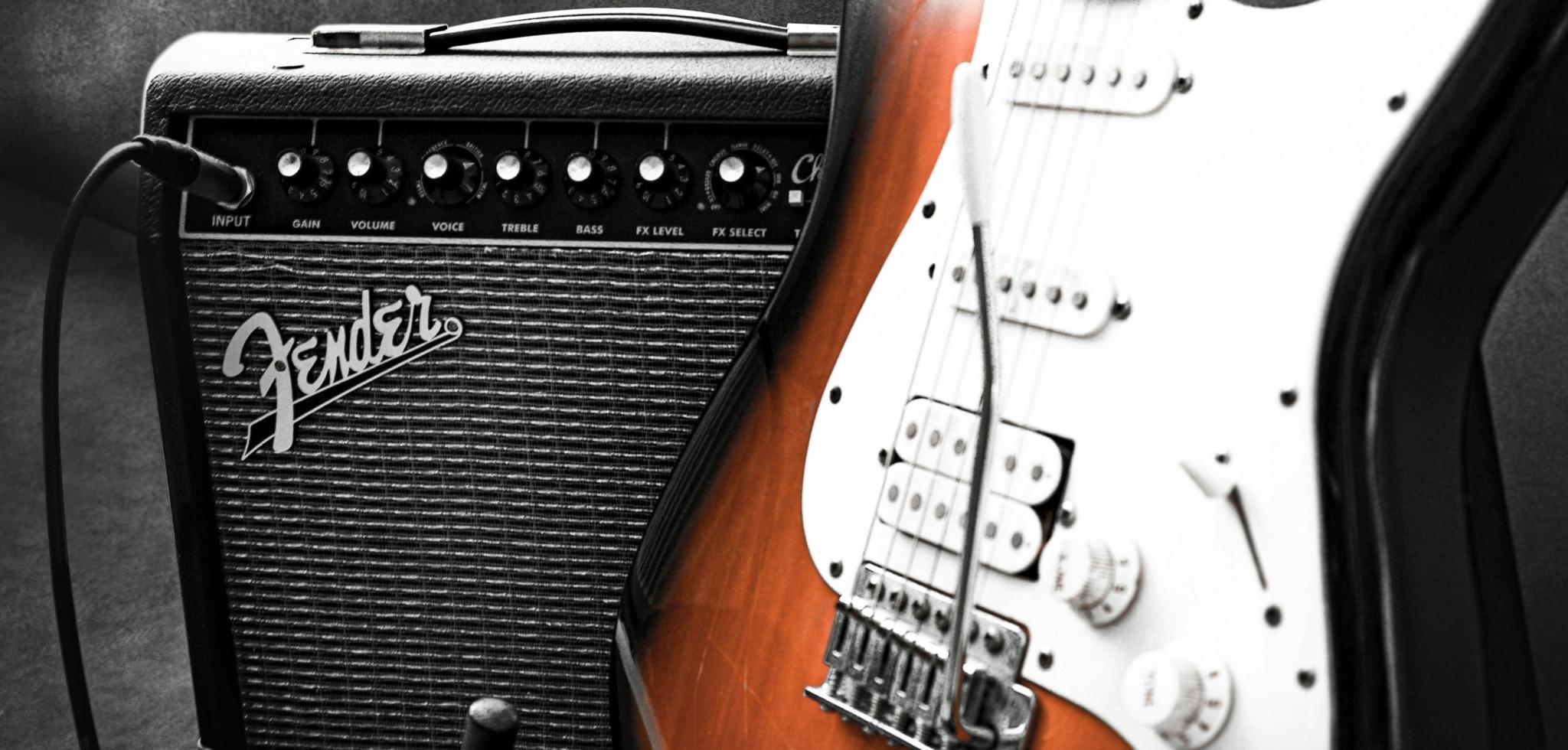
As such, keeping an eye out for deals that include things like practice amps, pedals, picks, spare strings, tuners, and music theory books can often save you a considerable amount. These deals tend to pop up when shops are looking to clear out the last little bits of stock from a certain line, and they often result in you essentially getting a load of freebies when buying a retail-priced guitar. If you’re serious about learning to play, you’re going to need these things eventually anyway. Why not grab them early on when the price is right?
A Few Standout Choices for Your First Electric Guitar
So, as I’m sure you’ve all been waiting for, here are my suggestions for a few standout models to consider as your very first electric guitar.
Yamaha Pacifica 012 – Around $220 New

The choice of guitar for most education centers, the Pacifica 012 offers an H-S-S (Humbucker-Single-Single) pickup setup and quite a lot of tone for its price tag. It’s versatile, easy to modify and upgrade, and a really great example of an electric guitar.
Fender Squire Telecaster – Around $200-250 Secondhand or New

The Squire is a rather iconic guitar, and these can easily run you into the $500+ mark. However, there are opportunities when it comes to these. New, the basic models retail for around the $250 mark. These are great and will certainly work well as a first guitar. However, if you’ve got the patience, the better models regularly pop up secondhand for as low as $200. Due to their popularity, many new players grab them as their first electric guitar. However, a lot of them eventually give up and sell them on. With such a flooded market, they tend to go for quite cheap. Why not grab yourself a bargain?
Vintage V120 – $300-$350 New
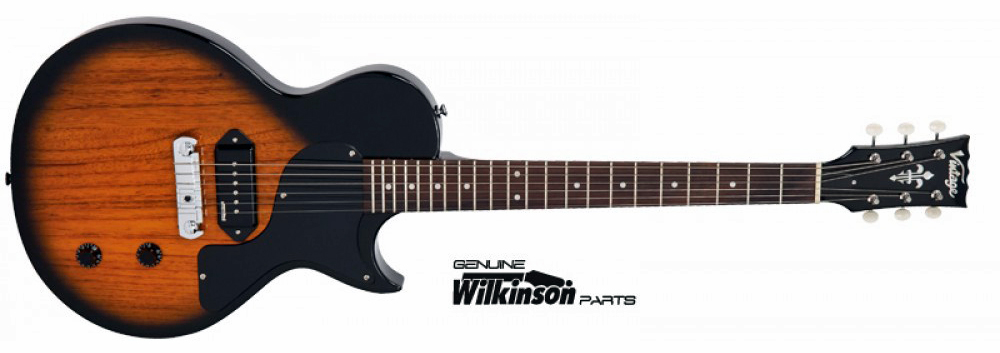
This wonderful gem, built in the style of the Les Paul Junior, is such a good guitar that it’s made its way into my home even though I rarely get to use it. It’s incredibly well built, offers fantastic tone from its single P90 style pickup, and is just a delight to play. Its simplistic design might be lost on some, but I really do love mine. The V120 tends to retail a little higher than the other options I have suggested, but these can often be picked up quite cheaply on the secondhand market. Either keep an eye out on eBay or grab one brand new; you won’t be disappointed!
TL;DR
Picking up your first electric guitar shouldn’t be difficult or terrifying. While the market is vast, there are only really a few small decisions to make when you’re just starting out. As I always say, set yourself a budget and stick to it. Don’t cheap out, but don’t drop thousands on your first guitar. Ask for help from anyone you know who plays guitars, and be aware of salespeople trying to make commissions. Think about what it is you want to play before you choose what to play it on, and make sure you’ve got the right kind of pickups for that genre. Always keep an eye out for package deals or secondhand steals, and don’t forget the most important piece of advice of all: PRACTICE!
If you enjoyed this article, check out Choosing Your First Bass Guitar and start building up your instrument repertoire!
Sobre el autor

Tim Dunphy
Ingeniero de sonido y redactor de contenidos especializadosMás de 10 años de experiencia trabajando en el sector del audio. De todo, desde enrollar XLR hasta masterizar álbumes. Soy un hombre hecho a sí mismo y mantengo mis activos en Bitcoin. ¿Qué más hay que saber?
Deja un comentario
Inicia sesión para comentar
